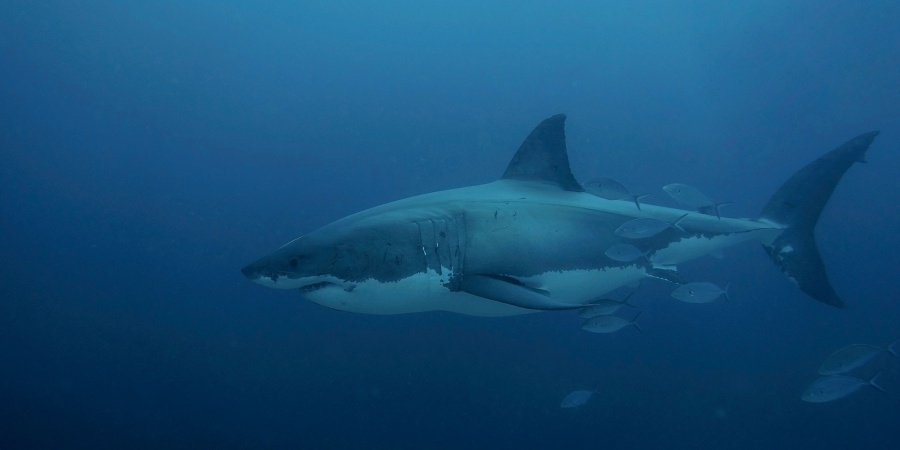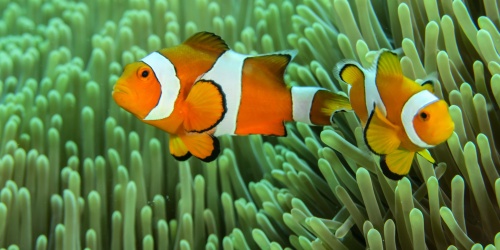
Great White Shark - Photo Janos / Adobe
These instinctive creatures do not distinguish between people and their usual prey species such as sea lions so you do not want to meet one in the water! Great white sharks will attack people, with several deaths being attributed to them over the past 100 years or so. Being top predators, they are inquisitive and unafraid, and will approach small boats and even bite outboard motors.
Description: Great white sharks have a moderately stout, torpedo-shaped body and are grey to greyish-brown on the upper surface and white below. They grow to at least six metres long, with unconfirmed reports of sharks up to seven metres in length.
Distribution and habitat: The great white shark is distributed widely in temperate and subtropical oceans throughout the northern and southern hemispheres, though it prefers temperate waters. It is sometimes encountered in southern Australia, usually around rocky reefs and islands in inshore coastal waters, where it gives boaters who happen to be in the vicinity quite a fright! In Australia, it is found from Ningaloo Marine Park in Western Australia around the southern coast to Moreton Bay in Queensland, but is more frequently seen in the south, particularly near seal and sea lion colonies. They are also known to follow humpback whales during their southern migration along the WA coast, so as to prey on the young calves and on old and sick adults. Great white sharks are uncommon and the population has declined significantly from levels prior to European settlement.
Biology and ecology: Large adults feed mainly on seals, whales and dolphins, but also take fish and other sharks. Younger great white sharks feed mainly on fish. Females mature at 4.5 to 5 metres and attain greater lengths and weights than males, which mature at about 3.0 metres. Minimum ages at maturity have been estimated to be 11 years for females and nine years for males.
Threats: Commercial and amateur fishing, including bycatch in longlines and nets, threatens the great white shark. Around 500 great white shark deaths in Australian waters each year may be caused by people, and 300 are thought to be related to commercial fishing.
How you can help protect the great white shark: Don't buy souvenirs like shark teeth or jaws. Buy a picture or poster of your favourite shark instead!



























